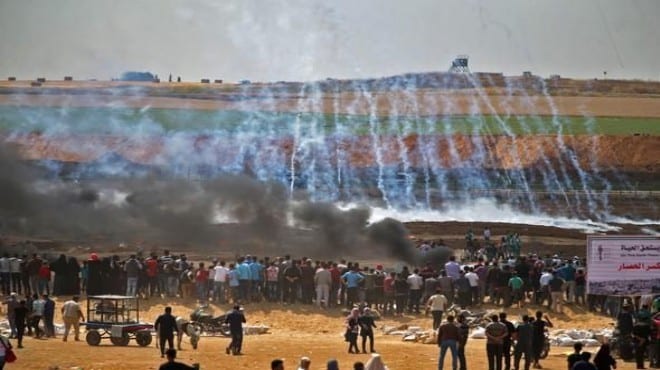Israeli and Palestinian factions, long trapped in conflict, have routinely fallen into patterns of violence. A stalemated peace process, a fragmented Palestinian political system and an Israeli government often rewarded by voters for hard-edge approaches have kept these cycles going. But since 2014, Israel and its primary Palestinian antagonist, Hamas, have had a tentative understanding over Gaza. That understanding’s shelf life, however, may be expiring.
Political developments within both Israel and the Palestinian Authority are exacerbating instability in the region and increasing the risk of violence between Israel and Hamas. In late December, a new party led by a former chief of the Israel Defense Forces joined the political fray in Israel, forcing Prime Minister Benjamin Netanyahu to find new ways to shore up his national security credentials and to defuse criticism calling his Gaza policy weak. And on Jan. 29, Prime Minister Rami Hamdallah of the Palestinian Authority resigned, marking the formal collapse of the long-moribund Hamas-Fatah unity government. The disintegration untethers Hamas from the Palestinian national government and formalizes Gaza’s de facto long-standing isolation.
Why It Matters
Two sets of forces are in play here. In Israel, various parties are jockeying for position ahead of elections in April. A new party led by retired Lt. Gen. Benny Gantz and called Israel Resilience is the most serious challenge to Netanyahu. Gantz had been sanguine about his policy positions until Jan. 29. In his first political address on that day, he revealed that his attacks on Netanyahu would focus on accusations of corruption and would allude to weaknesses on national security. Political attacks on these two topics are particularly significant because Israel faces exceptionally tense security situations in the north and the south.
In Gaza, the environment is moving increasingly away from compromise and conciliation, even though its Hamas rulers well understand how disastrous another war with Israel would be. The collapse of the Hamas-Fatah 2014 unity agreement came about largely because Hamas wasn’t willing to surrender control of key aspects of Gaza, especially security, to its Fatah rival — despite months of intense mediation by Egypt to bring about an accord. But the collapse also became fait accompli because the economic rewards of the unity deal never came through. Hamas has had to rely on trickles of aid from Qatar via Israel to maintain public services, and the U.S. aid cutoff has worsened the economy. The end of the unity agreement also blocks any future economic support from the Palestinian Authority, leaving Gazans with just the meager flow of Qatari aid. Ordinary Gazans are growing angrier at the situation, creating a boiling social cauldron pushing for more action to restore aid. But Hamas has few tools besides rockets and missiles to influence Israel and its allies — and as the streets in Gaza roil with anger, it will be increasingly disposed to use them.
Hamas has few tools besides rockets and missiles to influence Israel and its allies — and as the streets in Gaza roil with anger, it will be increasingly disposed to use them.
Further Background
Netanyahu’s ostensible right-wing allies dislike his approach to Gaza. A cease-fire in November quite nearly brought down his government after the nationalist Defense Minister Avigdor Lieberman bolted from Netanyahu’s coalition in protest. That move forced the prime minister to pump up his national security credentials to stem a potentially fatal leakage of security-minded voters from the Likud Party and his allies. He has publicized military strikes in Syria and may do the same with Gaza. But those strikes may not be enough. Netanyahu may be tempted to hit high-profile targets, and that action could kick off a cycle of retaliation and violence between Israel and Syria or Gaza. Or he could take the risk of going farther afield and striking the Iraqi militias that Iran is arming with ballistic missiles.
Moreover, an escalation by Hamas ahead of Israel’s elections could play into Netanyahu’s hands. The prime minister might be pushed toward a wide-ranging operation in Gaza to stave off criticism from his right-wing allies and from Gantz’s supporters. In addition, if facing imminent indictment for corruption, Netanyahu could find political value in such a distraction ahead of polling.


Leave a Reply